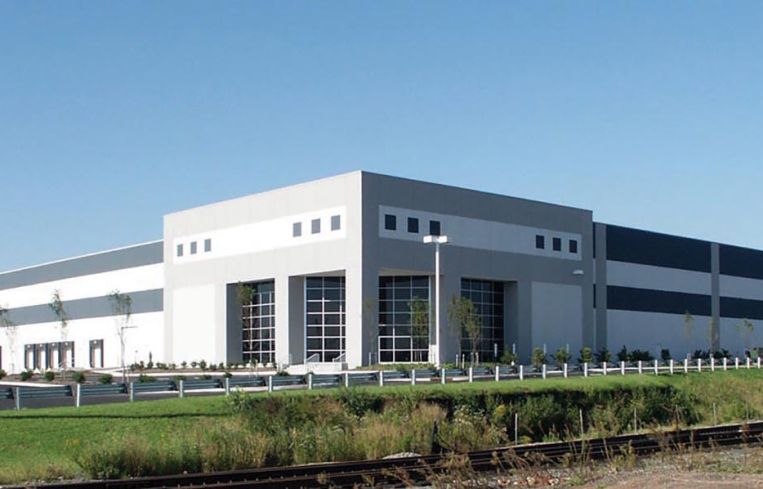Two Industrial Titans Dominate the Largest Portfolio Trades of 2019
Blackstone and Prologis vie for number one with massive portfolio trades
By Chava Gourarie February 11, 2020 10:40 am
reprints
The industrial market is firing on all cylinders, with a strong showing across all metrics for 2019, and into the new year.
Asking rents reached a record high of $7.53 per square foot, new product deliveries reached 224 million square feet, with an additional 309 million square feet in the pipeline, and net absorption was up for the 39th quarter in a row (that’s every quarter of the decade except the first), according to CBRE’s fourth-quarter report.
The factors driving the industrial sector, including the continuing rise of e-commerce and demand for last-mile logistics, showed no signs of stopping in 2019, and are expected to continue through 2020 and beyond. In addition to online retailers and logistics companies, which comprised 52 percent of industrial leasing, growth was especially strong in the food and beverage industry, as it responds to the rise in grocery deliveries and other supply chain needs, as well as from traditional retailers implementing new omnichannel strategies, and third-party logistics (3PL) companies.
“3PL activity still remains extremely strong,” said Leslie Lanne, a JLL industrial broker focused on the Northeast. “It gives tenants the flexibility to utilize others to run their facilities, to defer capital investment themselves, and to have flexibility in trying different programs.”
Although 2019 was the first year that supply outpaced demand, James Breeze, the head of industrial research at CBRE, says that’s a sign of strong demand, and not a setback.
“Adding 10 basis points of supply leads to more activity,” Breeze said. “We were getting to the point where there was so little supply out there.”
In addition, more than 60 percent of the new deliveries were leased by year-end, and more than a third of the construction pipeline is pre-leased, said Breeze.
“We don’t see any fear of overbuilding,” he said. The vacancy rate was at 4.4 percent at year end, an increase of 20 basis points year-over-year, per CBRE’s research.
In addition to a vigorous year for development and leasing, the transaction landscape was more active than ever before. Capital has been pouring in from both domestic and foreign investors.
“Both for domestic and international capital, industrial is looked at a very safe investment,” said Breeze, given its strong fundamentals and expected growth.
But in this market, two titans have spent the last year vying for champion of the space: Blackstone Group and Prologis. The two solidified their dominance with massive portfolio buys and mergers, playing a role in every single one of the five major deals of the year (on the selling end in only the smallest of the five.)
All of these deals were focused on last-mile portfolios in core markets, which serve the high-population centers on the coasts, as well as central hubs such as Dallas, Atlanta and Chicago.
1. Blackstone buys GLP portfolio, $18.7B
In the biggest industrial trade in history, Blackstone Group spent $18.7 billion to purchase a 179-million-square-foot portfolio from global investment manager GLP, nearly doubling its industrial footprint. The portfolio was comprised of urban, infill logistics assets across 36 markets, with tenants that include Amazon, Walmart and Adidas. The Singapore-based GLP entered the United States market in 2015 and became the nation’s second-largest owner of industrial assets by the time of the sale after Prologis. The deal, which closed in September 2019, was split into several transactions, as the assets were owned and acquired by several different GLP and Blackstone funds.
2. Prologis acquires Liberty Property Trust, $12.6B
In a second blockbuster deal, Prologis announced it would acquire Liberty Property Trust at a value of $12.6 billion. The bulk of the transaction, which was completed this month, was Liberty’s 112-million-square-foot logistics portfolio, including 5 million square feet under development. The deal also included land with potential development of a further 20 million square feet of logistics space, as well as a 5-million-square-foot portfolio of office assets. The portfolio will expand Prologis’ presence in some of the nation’s core markets, including Chicago, Houston, New Jersey and Southern California.
3. Blackstone acquires Colony Industrial, $5.7B
Blackstone’s appetite for industrial assets was not satiated with the GLP deal. In September it announced that it would acquire Colony Industrial, the industrial arm of investment management firm Colony Capital for $5.9 billion. (See CO’s story on page 33.) The portfolio includes 60 million square feet of last-mile warehouses, with 465 light industrial buildings in 26 markets, particularly in core markets like Dallas, Atlanta, northern New Jersey, and Florida. The move, which will see Colony divest from its industrial properties, is part of Colony’s pivot to digital real estate and infrastructure.
4. Prologis buys Industrial Property Trust portfolio, $4B
Not to be outdone by Blackstone, Prologis announced another multi-state industrial deal, this time with Industrial Property Trust. The logistics giant announced in 2019 that it would acquire a 38-million-square-foot warehouse portfolio from IPT for $4 billion, and it closed in January of this year. The portfolio is comprised of 236 properties, the vast majority located in markets where Prologis already has a foothold. That includes all five of the country’s largest industrial markets, Chicago Atlanta, Dallas, New Jersey and Southern California, as well as other key markets, like Seattle and San Francisco. The portfolio includes 450 tenants, 172 of which are already Prologis clients.
5. Nuveen buys Blackstone portfolio, $3B
Shortly after closing its historic $18.7 billion acquisition of GLP’s portfolio, Blackstone unloaded 100 of the properties. Nuveen Real Estate purchased the 29-million-square-foot portfolio from Blackstone, valued at $3 billion, bringing its total industrial footprint to 80 million square feet. The properties, primarily light industrial and bulk logistics assets, are concentrated in once again, the core markets of Southern California, northern New Jersey, Chicago and Dallas, as well as secondary markets like Baltimore and Washington, D.C.



